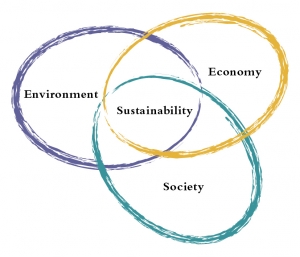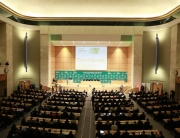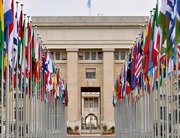Project Description
3 March 2015
On the occasion of the IHR Project’s participation in the UNCTAD Expert Meeting on “The Transformation of the International Investment Agreement Regime” in Geneva on 25-27 February, Andrea Saldarriaga and Andrea Shemberg (Project Leads) put together this short think piece on reform. This piece argues that IIAs and ISDS reform should address the current failure of global governance structures to ensure that international investment supports environmental, social and economic goals, while reinforcing principles of good governance.
There is increasing momentum worldwide to reform International Investment Agreements (IIAs) and Investor State Dispute Settlement (ISDS) driven by criticisms and concerns from governments, civil society organisations, academics, and more recently, the arbitration community itself. This past year unprecedented public protests regarding the negotiation of an international investment agreement swept across Europe, echoing concerns voiced in Latin America, Africa and Asia.
 Successful reform requires a careful assessment of the issues at the core of the criticisms being expressed. Some criticisms challenge what they call the ‘imbalance’ of rights and duties for investors contained in IIAs and in ISDS. Others reflect concerns about the apparent challenge that IIAs and ISDS pose to some of the foundations of what the UN and other authorities promulgate as precepts of good governance, such as transparency and accountability. Yet much of the criticism levelled against IIAs and ISDS also reflect wider disappointments and frustrations about what international investment is delivering (or failing to deliver). While international investment creates expectations for improved prosperity and standards of living, in many contexts it has failed to deliver on this front and has also resulted in negative impacts on people and the environment.
Successful reform requires a careful assessment of the issues at the core of the criticisms being expressed. Some criticisms challenge what they call the ‘imbalance’ of rights and duties for investors contained in IIAs and in ISDS. Others reflect concerns about the apparent challenge that IIAs and ISDS pose to some of the foundations of what the UN and other authorities promulgate as precepts of good governance, such as transparency and accountability. Yet much of the criticism levelled against IIAs and ISDS also reflect wider disappointments and frustrations about what international investment is delivering (or failing to deliver). While international investment creates expectations for improved prosperity and standards of living, in many contexts it has failed to deliver on this front and has also resulted in negative impacts on people and the environment.
These same frustrations have underpinned a range of key policy discussions at the international level over the last decade, including in the areas of environment, taxation, corruption and business and human rights. Indeed, John Ruggie the former Special Representative of the UN Secretary-General for Business and Human Rights, pointed extensively to international investment as one key area where States and businesses need to better ensure the protection of and respect for human rights.
 Thus, we believe that the crisis we are witnessing is not simply a loss of legitimacy for IIAs and ISDS. Instead it is a more profound crisis reflecting the failure of international organisations, institutions, businesses, governments and others to create policies, rules, practices and norms that ensure that international investment supports environmental, social and economic goals, while reinforcing principles of good governance. We can identify in this crisis an unrealised expectation that international investment should support the values that we now often identify as sustainable development.
Thus, we believe that the crisis we are witnessing is not simply a loss of legitimacy for IIAs and ISDS. Instead it is a more profound crisis reflecting the failure of international organisations, institutions, businesses, governments and others to create policies, rules, practices and norms that ensure that international investment supports environmental, social and economic goals, while reinforcing principles of good governance. We can identify in this crisis an unrealised expectation that international investment should support the values that we now often identify as sustainable development.
Accordingly, overcoming this legitimacy crisis requires more than tweaking IIAs and introducing procedural reforms of ISDS. A broader stance to reform is needed, and it should begin by reinforcing the growing consensus around the supportive role that international investment should play with respect to sustainable development. The current negotiations of the Sustainable Development Goals appear to be pointing in this direction. Legitimacy can then be restored if this shared understanding is embedded in the very purpose and substance of the policies, rules, practices and norms that govern international investment.
What does this mean for reforming IIAs and ISDS specifically? The starting place must be an examination of the values embodied in the purpose and substance of these instruments.  They came about to promote and protect international investment, providing an alternative to gunboat diplomacy. The tools promote investment by protecting against the single threat of host-State interference. The key to investment promotion and protection is contained in a fairly standard set of broad legal safeguards for investors to use against host-State governments. The structure and substance of these instruments largely embody the values of a time when the dominant world view was that international investment necessarily resulted in economic growth, that economic growth alone secured development, and that corporations had no other purpose but that of making profits. The institutions and practices that grew up around these tools similarly reflect these values. These values and the practices and instruments that adhere to them are not aligned to what we now know to be true about achieving sustainable development.
They came about to promote and protect international investment, providing an alternative to gunboat diplomacy. The tools promote investment by protecting against the single threat of host-State interference. The key to investment promotion and protection is contained in a fairly standard set of broad legal safeguards for investors to use against host-State governments. The structure and substance of these instruments largely embody the values of a time when the dominant world view was that international investment necessarily resulted in economic growth, that economic growth alone secured development, and that corporations had no other purpose but that of making profits. The institutions and practices that grew up around these tools similarly reflect these values. These values and the practices and instruments that adhere to them are not aligned to what we now know to be true about achieving sustainable development.
Today we know that profitable international investment does not necessarily drive economic growth in host States, and we know that economic growth does not necessarily result in development, especially when it is achieved at the cost of people and the environment. Since 2011 we have an international consensus that companies have a responsibility to respect human rights in all of their activities and in every country where they operate. Moreover, the current body of research provides inconclusive evidence as to whether IIAs are a useful tool for increasing international investment flows, and institutions like the OECD are now warning States about the financial, reputational and political risks of signing IIAs, especially in light of these dubious benefits.
These observations beg a number of questions.
If we have a shared understanding that international investment should support sustainable development, what does this mean for the shape of these tools? Is it possible for the tools to remain largely as we know them today but embody new values that underpin sustainable development? Or, on the contrary, do we need an entirely new design?
There is growing evidence that in addition to managing political risk, the management of social and environmental risks is key to the success of an investment. How does this understanding shape our ideas about what ‘promotion and protection’ could mean? How should the need to reduce negative impacts on people and the environment shape the design of international investment tools?
IIAs and ISDS were meant in part to serve the interests of host States by helping them attract international investment to drive development. Given what we know now about IIAs, international investment flows and resulting development, what does this imply for how these tools can better serve host States’ interests in achieving sustainable development? Moreover, how can these tools respond to the varying development needs of host States over time?
These are just some of the fundamental questions that need to be addressed if there is to be a meaningful reform of IIAs and ISDS. At the London School of Economics we are working to catalyse research and thinking around these ideas.
Photo credits:
TTIP protest in London on 12 July 2014: source Global Justice Now
Sustainable Development: source the American University in Cairo
Values: source The Start of Happiness











